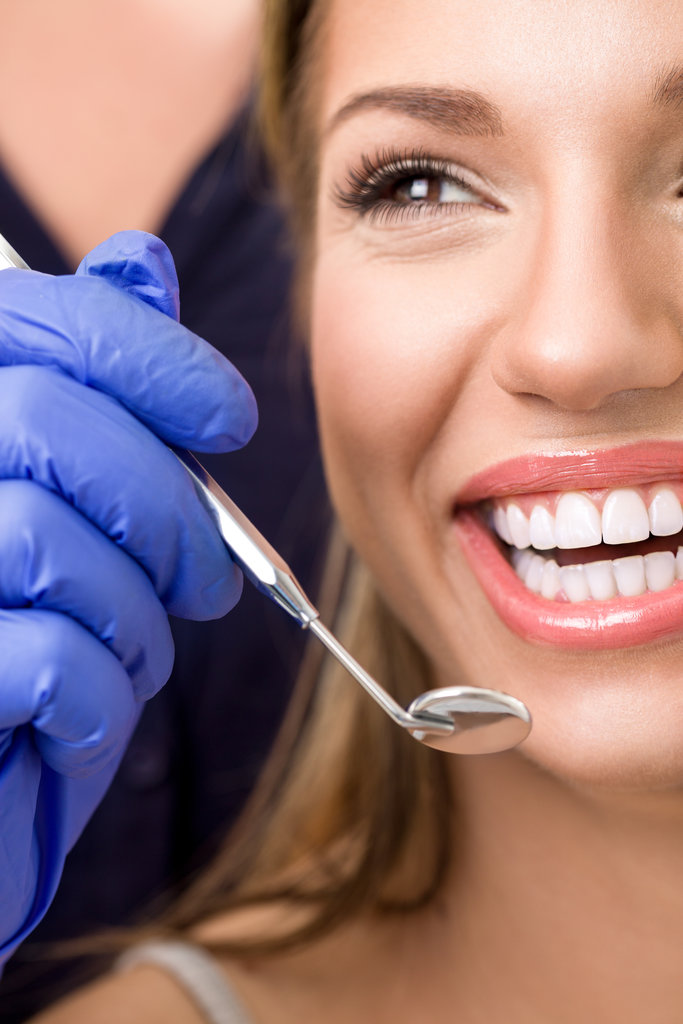At Simpson Dental PLLC, we utilize state-of-the-art bacterial DNA testing to provide effective periodontal treatment. This molecular biological assay helps identify harmful bacteria that contribute to gum disease, dental decay, and other oral diseases. By isolating the specific periodontal pathogens involved, our team can develop targeted treatment plans to improve your overall oral health.
Periodontal research has shown that early identification of harmful oral bacteria can significantly reduce the risk of complications such as tooth loss, bleeding gums, and even cardiovascular disease. By identifying and managing these threats, we help protect both your smile and your systemic health.

Bacterial DNA testing plays a critical role in risk assessment before any major dental treatment. Identifying bacterial infections early allows us to prescribe antibiotics when necessary and ensure that restorations such as a restored tooth or dental crowns are not compromised. By addressing bacterial issues at their source, we enhance the success and longevity of various dental procedures.
How Does Bacterial Diagnostic Testing Work?
Our team collects a sample of your saliva and sends it to a specialized lab for bacterial diagnostic testing. This process identifies harmful bacteria that increase your risk of gum disease, tooth decay, and even HPV-related oral health concerns. Many people are unaware that HPV can heighten the risk of head and neck cancer, making bacterial diagnostic testing an essential tool for proactive and personalized oral care.
By pinpointing specific bacteria responsible for periodontal disease, we can develop a targeted treatment plan to combat destructive gum infections. Genetic susceptibility to these conditions can also be assessed, allowing us to customize preventive strategies to minimize potential risks. While regular checkups, brushing with fluoride toothpaste, and daily flossing are vital, individuals with a higher predisposition to active periodontal disease may require additional treatments to maintain optimal oral health.
DNA testing also helps detect the presence of HPV in the mouth. As one of the most common viruses, HPV increases the likelihood of developing oral pathogens-related health issues. Early diagnosis enables us to monitor for symptoms more closely, ensuring timely intervention and treatment if necessary. Our goal is to safeguard your oral cavity and overall health with precise, science-backed care.
General and Family Dentistry Financing Available
Quality dental care for the entire family with flexible financing that makes comprehensive treatment accessible.

Recognizing the Signs of a Dental Abscess
A dental abscess is a serious condition that requires immediate attention. An abscess is a pocket of pus that forms due to gum infection, typically caused by poor oral health, dental decay, or chronic periodontitis. When bacteria invade the tooth pulp or surrounding gum tissues, the infection can lead to severe pain and swelling.
Patients with an abscessed tooth often experience a throbbing toothache, sensitivity to hot or cold, and swelling in the upper or lower jaw. If left untreated, a tooth abscess can lead to life-threatening complications, including the spread of infection to other parts of the body. Our dental professionals carefully assess each affected tooth and provide the necessary dental treatment to eliminate the infection and restore oral health.
Treatment Options for an Abscessed Tooth
An infected tooth requires prompt care to prevent further complications. Root canal treatment is a common procedure used to treat an abscessed tooth by removing the infected pulp, cleaning the tooth root, and sealing it to prevent reinfection. This process helps save the natural tooth and alleviates tooth pain caused by periodontal disease bacteria.
In cases where the infection is severe, our dentists may need to prescribe antibiotics to manage the bacterial infection before performing a root canal. If the abscess cannot be effectively treated with a root canal, extraction may be necessary to prevent the infection from spreading. Our goal is always to preserve as much of the natural tooth structure as possible while ensuring the best outcome for the patient.
Preventing Tooth Infections and Maintaining Oral Health
Preventive care is essential in reducing the risk of a tooth infection. Practicing good oral hygiene, including brushing with fluoride toothpaste and flossing daily, helps protect tooth enamel and prevent bacterial buildup. Regular dental checkups allow for early detection of issues such as dental decay or gum disease before they develop into more serious conditions.
Patients should also be aware of the signs of bleeding gums and gum infection, which may signal the early stages of periodontal disease. Proper dental care, combined with professional DNA testing, can help prevent infections and ensure long-term oral health. Left untreated, these conditions may contribute to systemic diseases such as vascular dementia or cardiovascular disease, underscoring the importance of timely diagnosis and treatment.
Best Dentists in Charleston with Generational History
At Simpson Dental, we’ve built a reputation as Charleston’s most trusted dental practice through generations of dedication to our patients. Since 1948, our family-led team has been committed to creating lasting relationships with those we serve, delivering care that goes beyond the chair. From the moment you walk into our office, you’ll experience the difference – a warm, welcoming environment, a compassionate team, and an unwavering focus on your comfort and well-being.
Frequently Asked Questions about Dental Bacterial Testing in Charleston, WV
How do oral infections contribute to disease progression in the body?
Oral infections, especially those involving periodontal bacteria, can lead to disease progression beyond the mouth. These harmful microbes can enter the bloodstream and contribute to systemic inflammation, increasing the risk of conditions such as heart disease and rheumatoid arthritis. Regular visits to dental clinics and early bacterial testing can help manage these risks effectively.
Can bad breath be a sign of more serious oral health problems?
Yes, chronic bad breath often indicates the presence of oral infections or a disruption in the oral microbiota. These conditions are commonly caused by periodontal bacteria, which can also lead to gum disease and bone loss. Addressing the root cause through professional dental care is essential to maintaining both fresh breath and overall oral health.
Is there a connection between periodontal disease and pregnancy complications?
Absolutely. Periodontal bacteria can trigger an immune response that may contribute to pregnancy complications like preterm birth or low birth weight. Managing oral health through regular screenings and cleanings at dental clinics is particularly important for expecting mothers to reduce these risks.
What role does bacterial DNA testing play in preventing bone loss?
Bacterial DNA testing helps identify the specific pathogens responsible for gum infections, allowing for targeted treatment before extensive bone loss occurs. By controlling the growth of periodontal bacteria early, dental clinics can slow or even halt disease progression and preserve the supporting structures of your teeth.
How is rheumatoid arthritis linked to periodontal bacteria?
Studies have shown that individuals with rheumatoid arthritis often have elevated levels of specific periodontal bacteria, which may exacerbate joint inflammation and disease severity. Treating oral infections and maintaining balanced oral microbiota can help reduce inflammatory triggers and potentially ease symptoms of rheumatoid arthritis.
Schedule Your Consultation Today
Our commitment to excellence and patient-centered care has made Simpson Dental a cornerstone of the Charleston community. We’ve proudly maintained a tradition of innovation and trust led by Dr. Mark Simpson and Dr. Christen Simpson Raynes.
Whether you’ve been with us for years or are joining our practice for the first time, we’re here to provide the personalized care you deserve.
Call Simpson Dental today at (304) 342-6162 or visit our contact form to schedule your appointment. Let us show why Charleston families choose us for their dental care.

Meet Your Charleston Dentists
When you choose Simpson Dental, you’re choosing a team with three generations of experience serving Charleston, WV. Our doctors combine advanced training with a genuine commitment to patient care.

Dr. Mark W. Simpson, DDS
Dr. Mark Simpson continues the family tradition his father, Dr. Bob, established in 1948. With decades of experience and a commitment to the highest quality care, Dr. Simpson has built a reputation for excellence throughout Charleston.

Dr. Christen Simpson Raynes, DDS, MBA
As a third-generation dentist and one of the Top 25 Women in Dentistry, Dr. Christen brings advanced expertise and modern techniques to the practice. She combines her grandfather's and father's legacy with cutting-edge technology.

Dr. Chase Preston, DDS
Dr. Preston joined our team to provide exceptional care while maintaining the personal, family-focused approach that sets Simpson Dental apart.
Hear From Our Patients
Don’t just take our word for it. See what patients throughout Charleston are saying about their experience with Simpson Dental.
Explore Our Complete Dental Services
Simpson Dental offers comprehensive dentistry for patients throughout Charleston, WV. From preventive care to advanced restorative procedures, our three-generation practice delivers exceptional results.
- General Dentistry
- Cleanings
- Gum Disease Treatment
- Tooth Extractions
- Dental Botox & Fillers
Visit Us!
Conveniently located in Charleston, West Virginia, Simpson Dental has been serving our community since 1948. Our state-of-the-art facility features the most advanced dental technology in the state, including an on-site dental lab for same-day solutions.
Our central Charleston location makes it easy for patients throughout the Kanawha Valley to access exceptional dental care. We serve patients from Cross Lanes, South Charleston, Dunbar, St. Albans, Beckley, Fayetteville, Lewisburg, and surrounding communities. We also welcome patients from the Huntington area and nearby Ashland, Kentucky, who travel to Charleston for our specialized services and same-day solutions.
